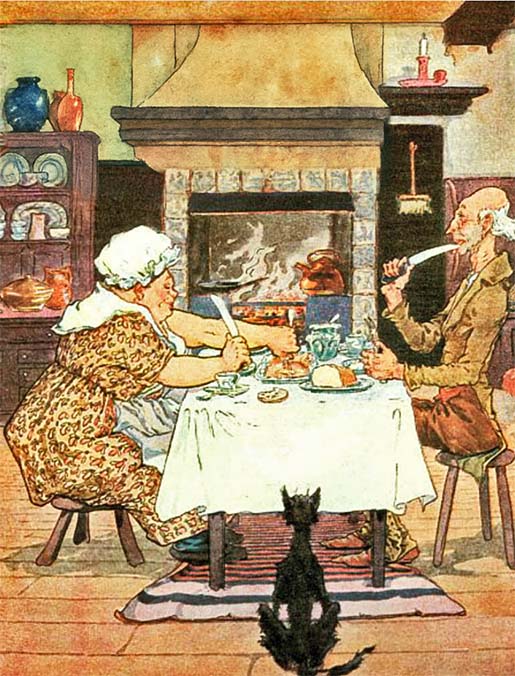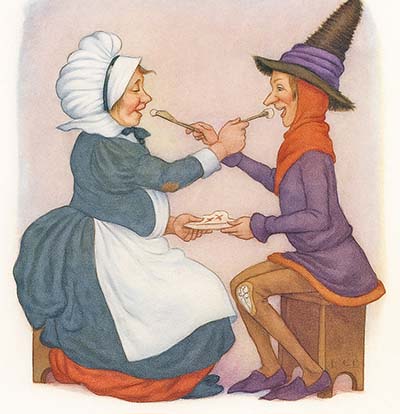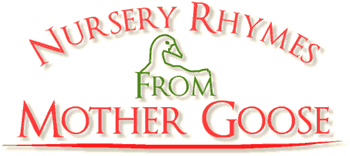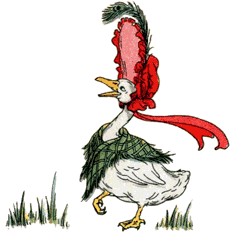Jack Sprat
Jack Sprat could eat no fat,
His wife could eat no lean.
So ’twixt them both they cleared the cloth,
And licked the platter clean.

Origins
Jack Sprat began life as a proverb long before it became a nursery rhyme. As early as 1639, John Clarke noted a version in his book of sayings: “Jack will eat no fat, and Jill doth love no lean, yet betwixt them both they lick the dishes clean.”
Meaning
In earlier centuries, the name “Jack Sprat” had been used as a nickname for very small people, probably referencing the sprat fish, which is tiny but meaty. Over time, the proverb came to represent two very different appetites that somehow balanced each other out.
Folklorists suggest the rhyme might even have a political edge. One reading links “Jack Sprat” to King Charles I — said to be “lean” because of his financial struggles with Parliament — and his wife, Queen Henrietta Maria, imposing taxes to get the “fat.” In that telling, the couple “licked the platter clean” not of food, but of money or resources.
By the mid-18th century, the rhyme had moved from proverb to nursery verse. It appeared in Mother Goose’s Melodyaround 1765, and over time the moral or satirical edge faded in favor of a domestic, comic image: a frugal Jack Sprat and his wife clearing a plate between them.
 When the rhyme entered Mother Goose collections, it took on a gentler tone. Illustrators loved drawing the contrast: Jack as slim and frugal, the wife plump and indulgent, both sitting at a table with a clean platter. It made the rhyme tangible and humorous.
When the rhyme entered Mother Goose collections, it took on a gentler tone. Illustrators loved drawing the contrast: Jack as slim and frugal, the wife plump and indulgent, both sitting at a table with a clean platter. It made the rhyme tangible and humorous.
It survives in children's books today as a kind of miniature version of the “odd couple” trope: very different tastes, but somehow a shared meal. It’s also a reminder that folk wisdom — or casual satire — can make its way from adult proverbs into the nursery, and stick there for generations.

